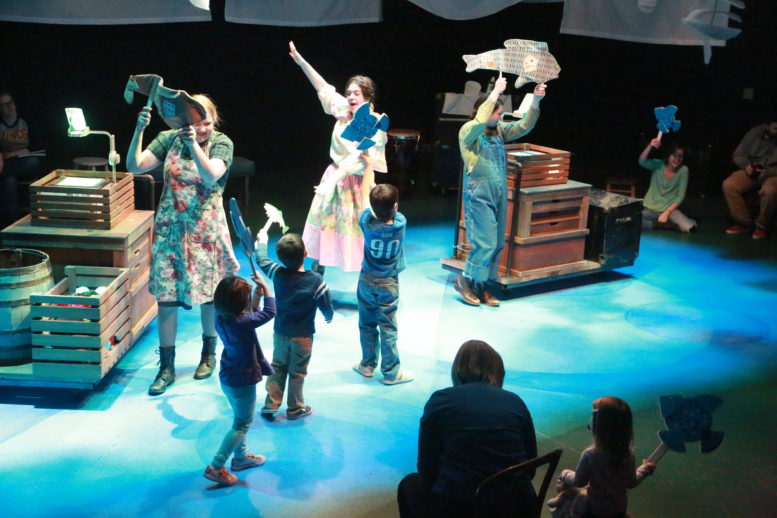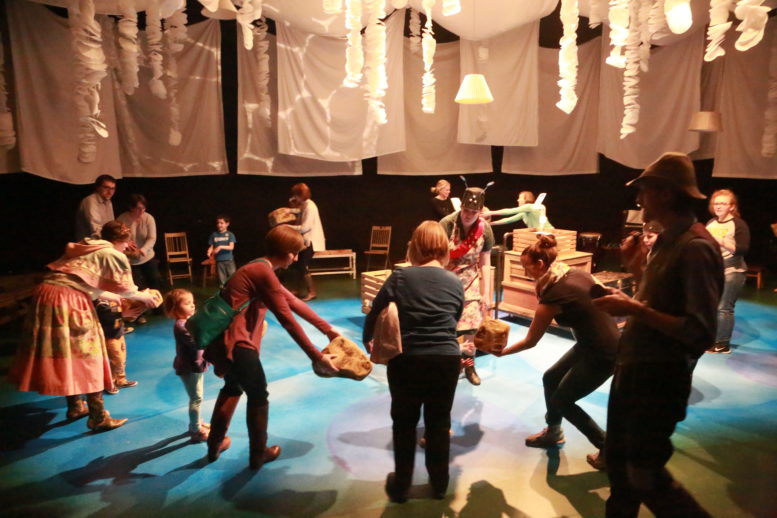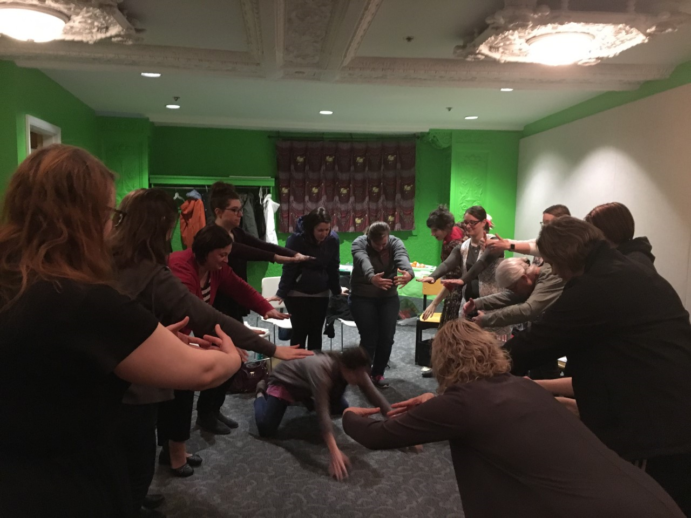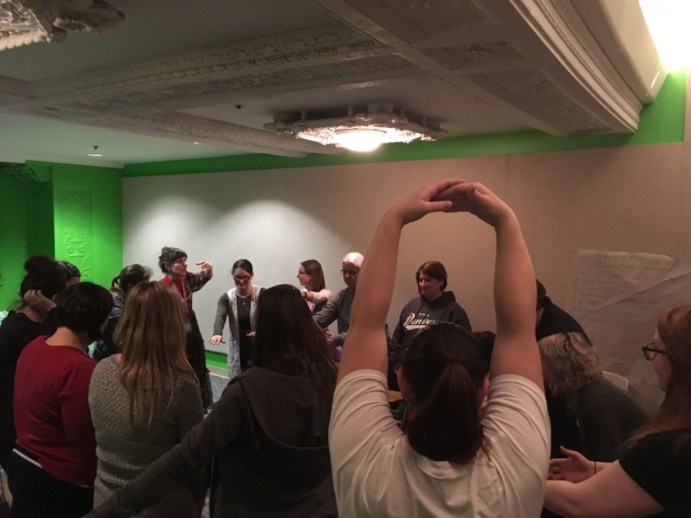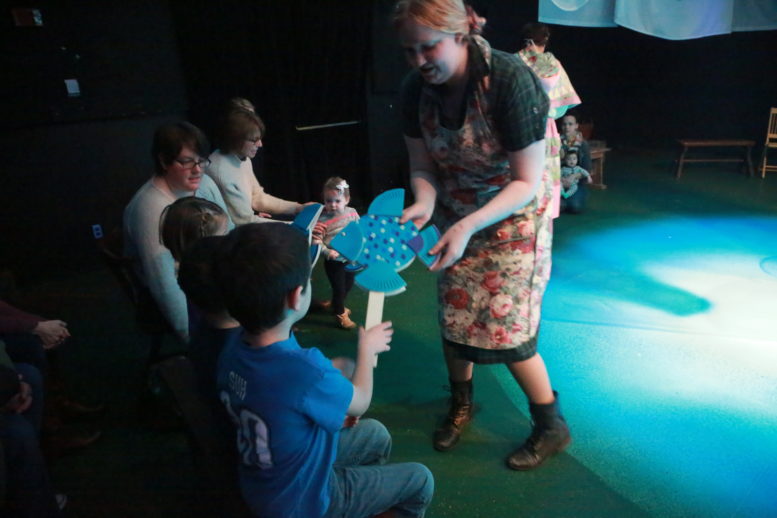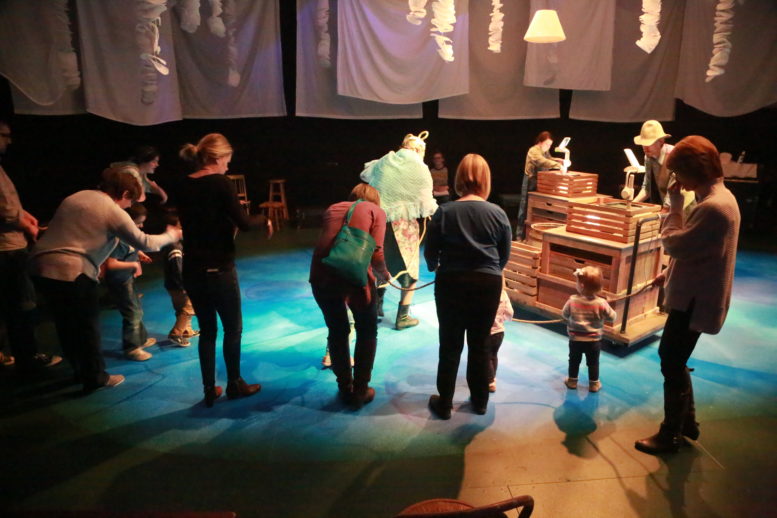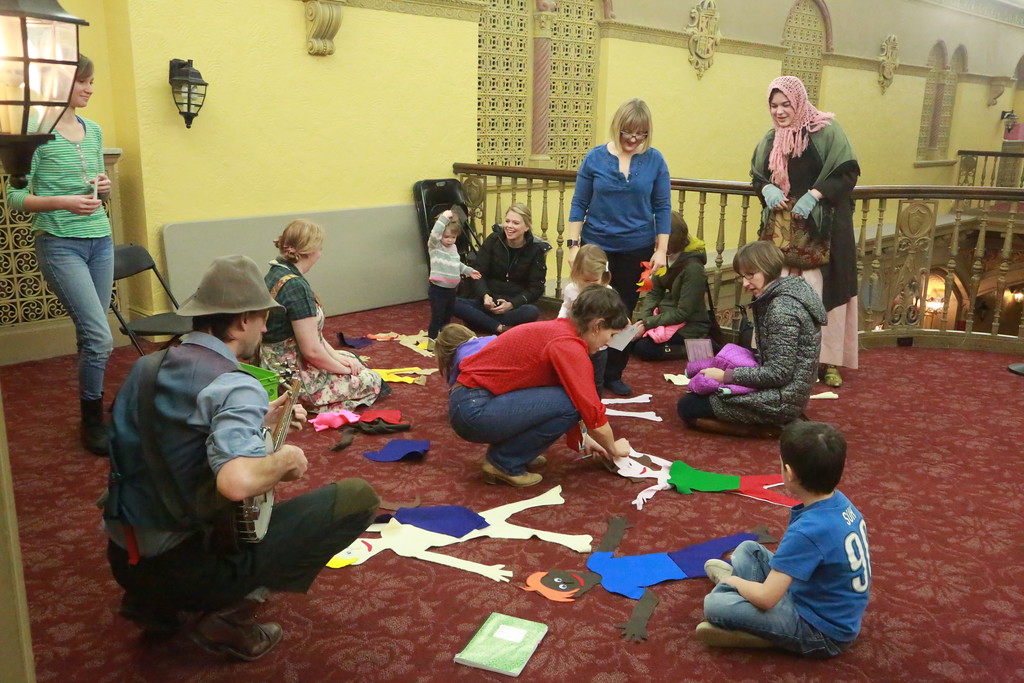
As a recent article in Parents magazine explained, one of the greatest ways to help your child be successful is by fostering their creativity. According to Lisa Eckland-Flores, cofounder and executive director of New York City’s Church Street School for Music and Art, “Fostering creativity won’t just increase your child’s chances of becoming the next Picasso. You’re also helping him develop mentally, socially, and emotionally.” Creating art may boost young children’s ability to analyze and problem-solve in myriad ways, according to Mary Ann F. Kohl, author of Primary Art: It’s the Process, Not the Product.
Realizing the importance of introducing creative play to children of all ages, this past year, The Rose Theater expanded the Every Single Child (ESC) program to 35 Pre-K classrooms at 10 schools in the surrounding areas.
What is the Every Single Child program? It is a program originally designed to allow every elementary and middle school student in Omaha the opportunity to take part in at least one meaningful theatrical experience each year, whether it be a school field trip show, touring show or workshop. The program currently serves more than 36,000 students in 80 elementary and middle schools.
The Rose was eager to expand the 17-year-old program to include 35 Pre-K classrooms at 10 schools during the 2016-17 school year! It would prove to be a very exciting adventure.
There were three main components of the program:
- THEATRICAL PRODUCTION at the schoolDuring the fall semester, students were able to first experience the touring show Farmer Brown’s Birthday Surprise. This show was presented at the school, in familiar environment for the students.
- THEATRICAL PRODUCTION at The RoseThe Rose Theater produces two Theater for the Very Young shows each season, in a series called FIRST STAGES. FIRST STAGES shows are designed specifically for preschool children and children experiencing theater for the first time. The shows feature interactive play and use communication methods that maximize the learning and understanding processes of preschoolers.As a part of the Pre-K ESC program, students came to The Rose to see a production of our FIRST STAGE production,
- PRE- AND POST-SHOW WORKSHOPS at the school and at The RoseDuring the 2016-17 school year, each partnering Pre-K classroom participated in four creative drama workshops, one before and one after each Theater for the Very Young production they saw. The pre-show workshops helped prepare students for the experience they would be viewing, while the post-show workshops reflected upon key concepts addressed in the productions.
In addition to these student-focused workshops, each classroom teacher had the opportunity to earn professional development hours through a teacher training workshop, “Bringing Books Alive!”, which focused on how to bring creative drama into the preschool classroom. This workshop, also, had a successful turnout.
Below: Classroom teachers during the PD workshop, “Bringing Books Alive!”
This new ESC endeavor beautifully achieved its goal, reaching a total of 700 students and 37 teachers. It’s no secret, however, that at the beginning of the program, some partnering teachers felt uncertain about incorporating theater in the classroom. Some were unsure if their students’ interest could be held for an entire creative drama lesson or an entire performance, or if lessons could be properly adapted for students with varying levels of development—all very real concerns when dealing with children in the Pre-K age group.
Our Rose artist educators tackled these concerns head-on in order to bring the most meaningful experiences to all students. To keep the students focused and involved, objects were used for the students to feel, hold and manipulate; this helped involve their tactile senses as a part of the learning experience. We taught many different songs and dances to keep the students engaged – teaching them about our basic acting tools of bodies, voices and imagination.
Above: Students and actor Robyn Helwig during the preview of FIRST STAGES show, Thumbelina
One very important aspect of the Pre-K ESC program is the use of structure. By making sure each workshop followed a set structure, teaching artists were able to create a sense of familiarity for the students. It helped students anticipate what was coming next and keep up with the class without feeling intimidated or overwhelmed.
The Rose’s team of teaching artists modified and adapted the creative drama lessons in order to be more accessible to students of varying levels of development. The teaching artists not only brainstormed tools to help adapt the lessons for students, but they also discussed these modifications with partner teachers. They used their deeper knowledge of the students to help shape and individualize the changes. Some of these modifications included:
- changing the length of the lesson
- focusing on a more specific topic in the lesson
- using sign language and extra visual tools
- physically simplifying some of the activities, so that all students could be successful.
And we truly believe that both students and teachers were, in fact, extremely successful.
Above: Students and cast during the preview of FIRST STAGES show, Thumbelina
Despite the concerns expressed at the beginning, The Rose is proud to share that feedback from every one of the teachers involved after the plays and workshops, expressed satisfaction and a positive reaction to the experiences fostered in their classrooms by The Rose educators. One teacher stated that although she had “doubts” at the beginning, she has now “used [these] activities and enthusiasm in other areas of [her] class.” Additionally, teachers who at the beginning of this program were unsure about using creative drama techniques because they considered themselves to be “not that dramatic or artistic,” felt as though they had gained useful tools through this program that they were already beginning to incorporate into their classrooms.
Most importantly, this program proved to be very engaging for the students, as they were not only very excited for each visit, but also continued to “talk about the play several months later,” and engaged in their own creative play after the lessons were over, using their imaginations to re-visit the topics we explored in our creative drama sessions. Teachers shared that the lessons “expanded [students’] vocabulary,” and “helped them understand what it means to use their imaginations.” Because of this program, the students “were more confident and willing to participate in the theater experience,” and learned “to feel comfortable having unique ideas, different from friends.” Additionally, although most students involved had no prior experience in seeing a play, they showed confidence in viewing and participating in both of the performances they saw, due to the way the creative drama lessons introduced them to those kinds of experiences. As one teacher said, “The plays alone would be enjoyable, but the drama sessions prepared them and helped them fully engage in the plays.”
Finally, all of the partner teachers expressed a clear and definitive desire to continue the Pre-K program in the future, stating that “the program was very engaging and age appropriate,” and that “this was a great learning experience for [their] students.” The teachers shared that they “are going to sign up for this program next year and are excited to continue [their] relationship with The Rose Theater.” Every school involved in the 2016-17 school year will be returning for the 2017-18 school year.
We hope that by bringing these opportunities to area preschools, we are helping foster a sense of creativity in these children and ensuring their future success.
For additional information about The Rose Theater’s Every Single Child Program, please contact Brian Guehring at briang@rosetheater.org.
